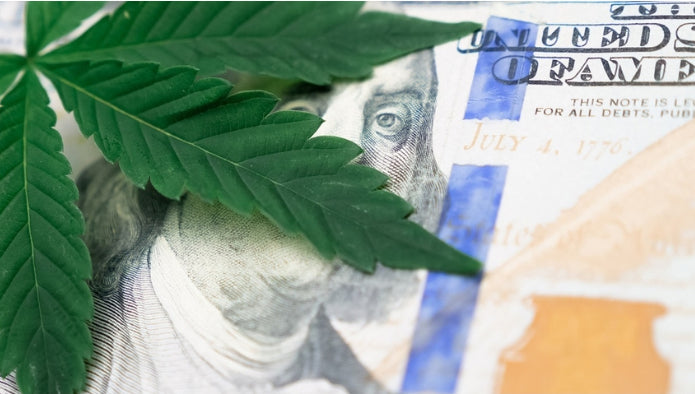As Congress begins approving funding for crucial spending programs, one committee is focusing on the proliferation of unregulated hemp-derived offerings.

Summer officially starts today, and it appears it could become the "Summer of CBD." The enigmatic and economically potent hemp variant has been under intense scrutiny over the past few years, primarily because of its murky and inconsistent regulatory reputation.
The passage of the 2018 Farm Bill made it legal to cultivate hemp once again. It also legalized manufacturing and selling the plant's derivative products, like CBD. However, lawmakers failed to provide additional legislative backing for the historic policy change, placing much of the burden of regulating the subsequent onslaught of hemp-based offerings on the U.S. Food and Drug Administration (FDA).
As a result, the FDA has struggled, openly at times, with how to properly construct safe and effective regulatory guidelines for CBD and other hemp products, which has led to extremely lackluster efforts to provide desperate stakeholders in the CBD industry with a clear path toward that all-important "FDA Approved" stamp on their products.
Feeling the pressure from the rapidly expanding sector and influential members of Congress to take action and implement regulations for the CBD and other hemp-based sectors, the FDA pushed back earlier this year with a letter announcing that it would no longer be regulating CBD products. In that statement, the agency said there needs to be more information about the safety of CBD products to properly regulate them as foods or supplements under the FDA's current structure.
FDA Deputy Commissioner Janet Woodcock said, "A new regulatory pathway would benefit consumers by providing safeguards and oversight to manage and minimize risks related to CBD products."
"A new regulatory pathway would benefit consumers by providing safeguards and oversight to manage and minimize risks related to CBD products."
- FDA Deputy Commissioner Janet Woodcock
The statement and the resulting fallout have led to much finger-pointing and blame assessment from all parties. Meanwhile, the CBD industry continues its downward economic spiral that began during the COVID-19 lockdowns.
Moreover, that financial collapse has forced many producers to seek revenue from somewhat dubious and unscrupulous sources, most notably the manufacturers of synthetic delta-8 THC and other chemically manipulated variants produced using CBD.
However, some light may be beginning to appear at the end of this very long and dark legislative and regulatory tunnel for Congress, the FDA, and the CBD industry. As first reported by Marijuana Moment, the U.S. House Appropriations Committee recently approved a spending measure funding the Department of Agriculture. Reports attached to the bill addressed issues aimed explicitly at CBD and the hemp industry.
In one of those reports, the committee calls for the FDA to "continue and increase" enforcement against CBD companies making unsanctioned claims concerning the benefits of the cannabinoid. At the same time, it recommends that the agency continue working with Congress to develop a regulatory framework for the product.
While this step from the House Appropriations Committee is not as definitive and instantly impactful as many in the CBD and hemp sector would like, it is somewhat of an olive branch being offered by a Congress that a few months ago made it clear that it was the FDA's problem to deal with and fix.
As the report says, "The Committee recognizes that FDA intends to work with Congress on creating a regulatory framework that could permit one compound in cannabis, cannabidiol (CBD), in consumer products. FDA indicated that such a framework could safeguard consumers by providing risk management tools to the agency to manage CBD risks, including labeling requirements, prevention of contaminants, content limits, and other public health protections, such as minimum purchase age, to mitigate the risk of ingestion by children."
"The Committee recognizes that FDA intends to work with Congress on creating a regulatory framework that could permit one compound in cannabis, cannabidiol (CBD), in consumer products. FDA indicated that such a framework could safeguard consumers by providing risk management tools to the agency to manage CBD risks, including labeling requirements, prevention of contaminants, content limits, and other public health protections, such as minimum purchase age, to mitigate the risk of ingestion by children."
- Report from the U.S. House Appropriations Committee
For many industry watchers and experts, the report signifies a slight but essential shift on the part of lawmakers in accepting some level of responsibility in figuring out a solution to the CBD question.
By requesting the FDA continue its enforcement efforts to curtail the spread of potentially harmful CBD product offerings while also accepting its charge to craft additional legislative clarity for the agency, Congress appears to be ready to work with the agency in finally putting together a strategy to bring CBD and many more of its hemp-derived cousins below the regulatory umbrella they so desperately want to run under.






































